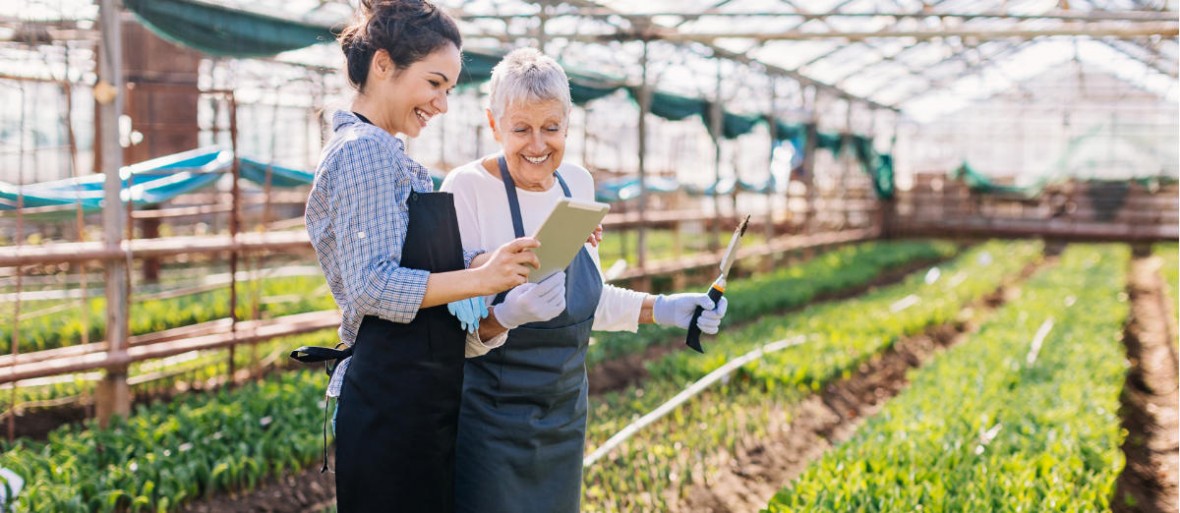When Wal-Mart announced last Fall that the company was utilizing blockchain in a trial to track food items (pork in China and packaged fresh produce in the U.S.), it marked an introduction of the much anticipated blockchain technology to the U.S. fresh supply chain. Wal-Mart expressed particular interest in the potential of blockchain to enhance end to end supply chain visibility, enabling product recalls to be accurately pinpointed, as well as generating data to support other areas of improvement.

Blockchain, a peer to peer solution that was first conceptualized in 2008 and most famously used in Bitcoin, is described as a distributed public ledger or database. A blockchain consists of a series of blocks, or individual records. Each block may contain a number of transactions, as well as a timestamp which links it back to a prior block. Of fundamental importance, the data cannot be subsequently altered, providing a verifiable and permanent information trail. Stakeholders use cryptography to allow each to update the ledger securely, without the need of a central authority to manage the database. (If that still seems a little fuzzy, check out this video from IBM: Blockchain in 3 minutes.)
In the case of the food products supply chain:
…digital product information such as farm origination details, batch numbers, factory and processing data, expiration dates, storage temperatures and shipping detail are digitally connected to food items and the information is entered into the blockchain along every step of the process. Each piece of information provides critical data points that could potentially reveal food safety issues with the product. The information captured in each transaction is agreed upon by all members of the business network; once there is a consensus, it becomes a permanent record that can’t be altered. This helps assure that all information about the item is accurate.
"With blockchain, you can do strategic removals, and let consumers and companies have confidence," Frank Yiannas vice president of food safety at Wal-Mart told Bloomberg, also stating that enhanced traceability is good for other aspects of food system optimization. The company also opened its new Wal-Mart Food Safety Collaboration Center in Beijing in October, announcing a collaboration with IBM and Tsinghua University to improve the way food is traced, distributed and sold to consumers in China.
The potential for blockchain to enhance the supply chain audit process is intriguing. "Instead of relying on periodic spot inspections," Heather Fraser of IBM recently "blockchain-enabled smart contracts can ensure that the appropriate parties are notified of non-compliant events as they happen. In short, blockchains establish a platform to automatically enforce privacy regulations; rules embedded via smart contracts dictate what they can see and when."
One early blockchain specialist, Provenance, is looking to help a UK retailer to enhance supply chain visibility of its products to shoppers.
While the possibilities seem compelling for food applications, there have been very few trials reported. Early adopters are coming from other sectors, such as finance, the pharmaceutical industry, and others. According to the new IBM Institute for Business Value blockchain study, "Healthcare Rallies for Blockchains," 16 percent of 200 international pharma companies interviewed for that report anticipate having a commercial blockchain solution at scale in 2017.
And in Africa, in the often problematic diamond supply chain, Everledger is using blockchain to create transparency and better ensure ethical conduct in a market that has concerns around the use of forced labor and the diversion of proceeds to fund violence. There is also a compelling financial angle, with the company noting that jewelry fraud costs insurers $2 billion annually.
While there has been little publicized activity yet in fresh produce beyond the Wal-Mart trial, the potential of blockchain to help build safer, more efficient food supply chains seems compelling. It is a trend worth monitoring closely as it builds in other sectors.
Stay up to date
Want the latest fresh food packaging industry knowledge delivered straight to your inbox? Subscribe to our newsletter and get the latest news, trends, articles and more!
